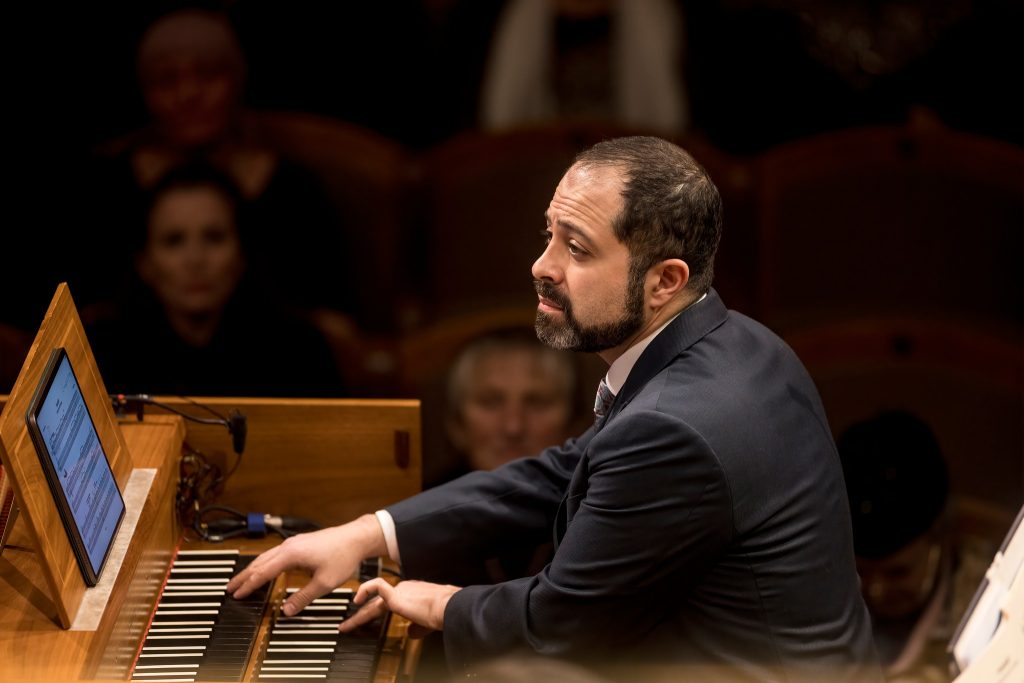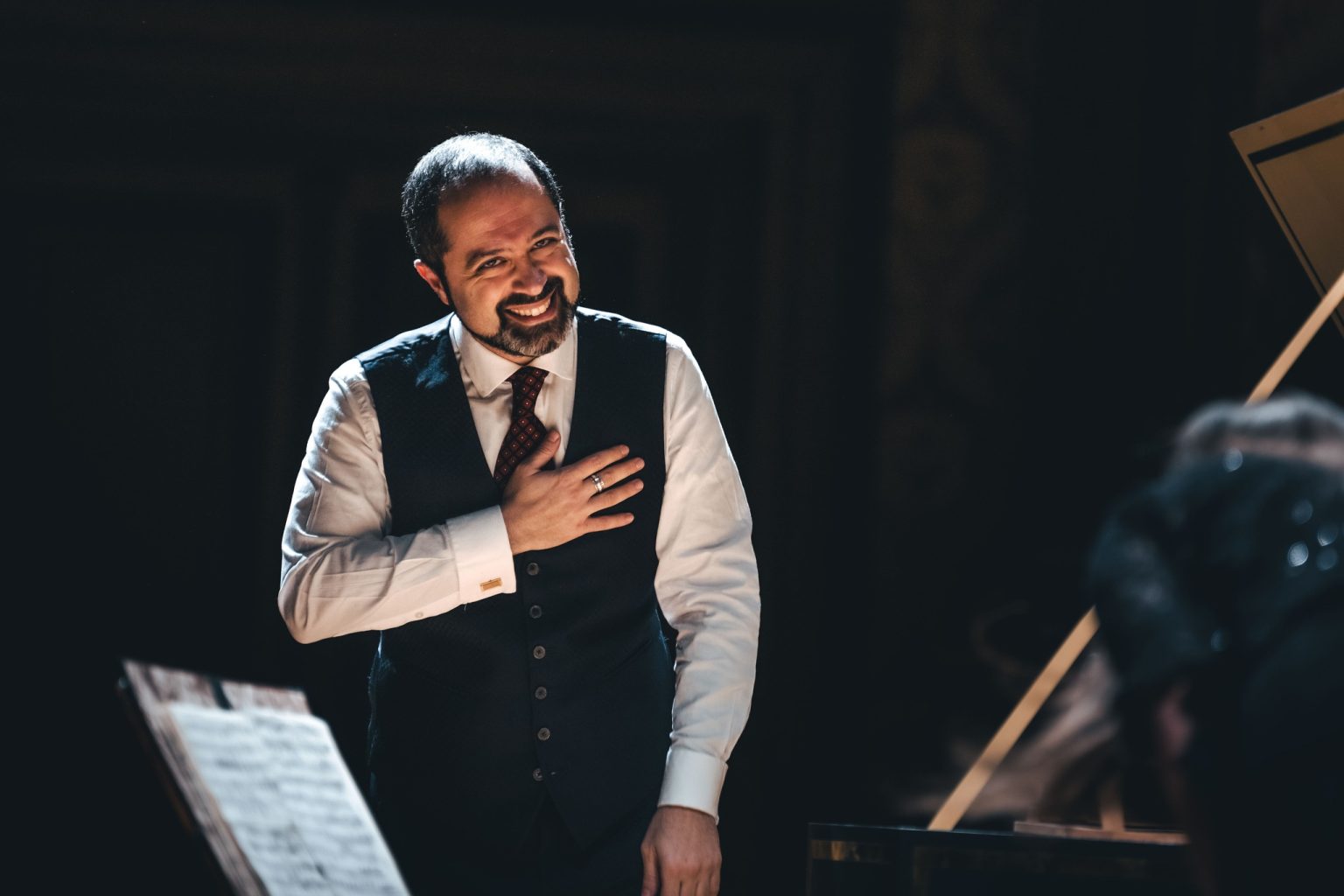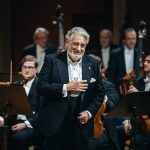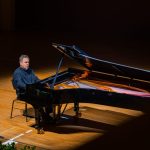by Jan Rotrekl
In the production of the Czech Chamber Music Association, one of Johann Sebastian Bach’s iconic works, the first book of The Well-Tempered Clavier, will be played on Wednesday, October 29th in the Dvořák Hall of the Rudolfinum. The performer will be the Iranian-American harpsichordist Mahan Esfahani, who has been living in the Czech Republic for a long time and is one of the most prominent figures in the contemporary harpsichord world. In an interview with him, we touched on his studies with Zuzana Růžičková and the greatness and power that the music of Johann Sebastian Bach continues to have.
Your musical education began with the piano. Can you describe how your artistic journey developed from the piano to harpsichord? Was there a specific impulse that made you decide that the harpsichord was the right instrument for you?
That would be a very long story indeed, but suffice it to say that if one viscerally loves the sound of an instrument, there is no way to stop the desire to be with that instrument for the totality of one’s work. I am aware that there are historical arguments for the harpsichord, and they don’t particularly interest me beyond some measure of curiosity. I feel expressive at the harpsichord, and that is that. Of course historical inquiry is ever-present because that is simply an outgrowth of intellectual responsibility that any musician should have, but to reduce the harpsichord to a historicist impulse is foreign to me. The binary between piano and harpsichord also is meaningless.
As a harpsichordist, how do you feel when music typically intended for the harpsichord – whether it’s works by Johann Sebastian Bach or Jean-Philippe Rameau – is played on a modern piano?
I feel fine about it. I would rather one play music well rather than feeling that equipment is a substitute for artistic responsibility. And in any case, modern pianists are my colleagues much more than harpsichordists in that they certainly behave much more collegial. Such binaries otherwise are beneath serious consideration.
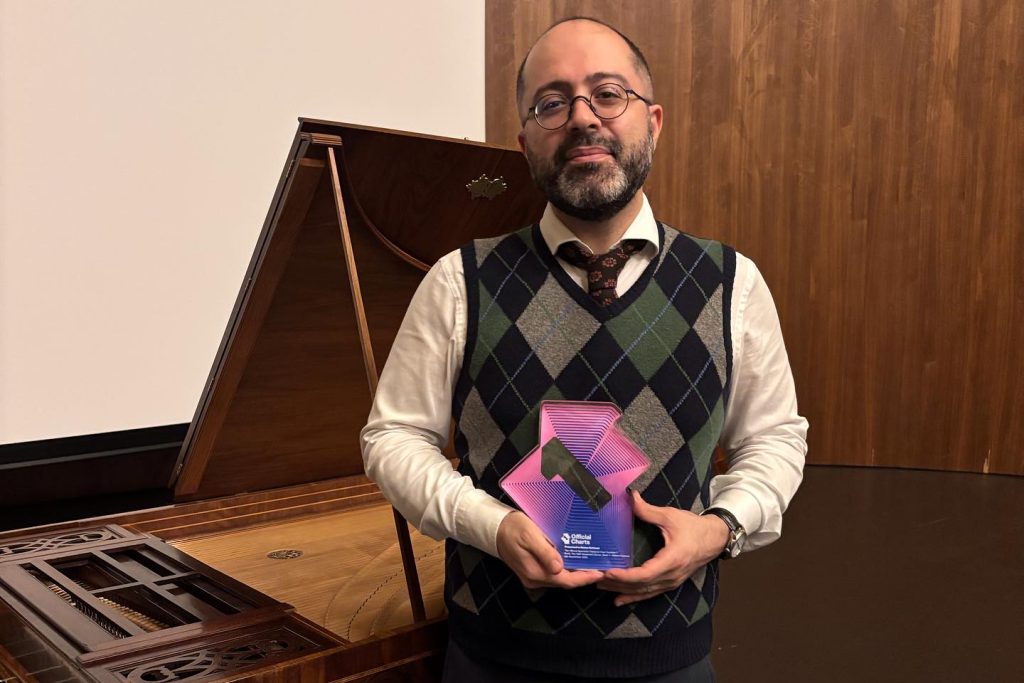
You are one of the prominent figures in the harpsichord world who are not afraid to cross the boundaries of early music. I assume that this was also the reason that connected your musical journey with the phenomenal Czech harpsichordist Zuzana Růžičková. How do you remember her, what was your relationship, and what did this extraordinary lady give you artistically (and perhaps personally)?
I remember Růžičková as a human being wholly outside of her time and place, which is to say that her interpretations depended not on external justifications but rather on her own unique voice as an artist. What was particularly memorable about her was that she was constantly questioning her own ideas of a piece, and so our six years of lessons together involved an open and sometimes quite contentious conversation. Eight years after her death, I am still having that conversation, and it is still quite intense. I feel extremely fortunate to have known her.
The harpsichords vary and historical instruments from different countries have varied as well, although it may not always be obvious to the listener. Do you have a favorite instrument or instrument type that just suits you, or do you prefer different instruments for different literature?
Generally, I prefer a good instrument to a bad one. I shudder to think of the times I played a poor harpsichord when a very fine piano was sitting backstage. If you had asked me ten years ago, I’d have said that the early eighteenth-century north German instruments were models of building (if only as a counter to the over-promoted French and Flemish conception of the instrument). Now I think late eighteenth-century English instruments surely must be the apogee of the harpsichord builder’s art. Tomorrow I will probably think something else. At home I prefer to spend my time with the clavichord, but of course that is not appropriate in a concert setting, and so it is just a private pleasure for me alone.
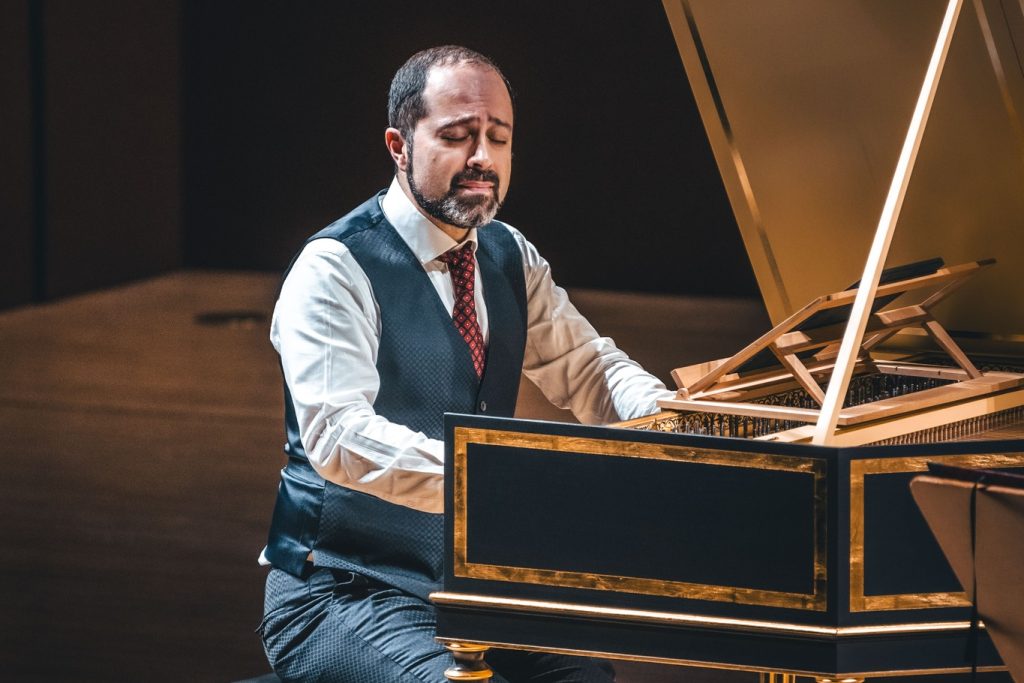
On October 29th, you will perform the first book of Bach’s Well-Tempered Clavier in the Dvořák hall of Rudolfinum. What instrument will you play? And how will it be tuned? There are also more tunings that already allowed the use of all keys without restrictions in the first half of the 18th century. Do you have any favorite tuning for Bach’s music?
The Well-Tempered Clavier is very clearly intended for a type of tuning that allows for maximum colour within each key and yet is ‘circular’ in that one does not have to change the distribution of dissonances between intervals throughout the cycle of 24 keys. One’s favourite tunings depends on the era in which a work by Bach was composed — for instance, tuning for the Capriccio BWV 993 (from around 1705) would be very differently done than that for the Goldberg Variations BWV 998 (1741). I will play a really very excellent instrument by the Leipzig builder Martin Schwabe, a copy from the instruments of Michael Mietke of Berlin ca. 1710, strung in iron and with a very vigorous and ‘masculine’ sound. I am of course biased in liking this instrument, for it is one of my own. Prague’s own Petr Šefl has voiced it, and it sounds magnificent to me.
This year we commemorate the Bach anniversary – 340 years since the birth of this great master. Your discography also includes many of Johann Sebastian Bach’s works. What does his music mean to you?
I suppose you could say that it means enough to me that I changed the course of my life for him, and that I spend my time recording and performing his complete keyboard works. If it weren’t for Bach, I’d have been a lawyer or something similar and would have had a very different life.
But on a more elaborate scale, I feel that in Johann Sebastian Bach we sense the extraordinary energy and vigour that has sustained an entire culture for over two thousand years somehow manifested in one man. It as though he was always there, even before his physical being came into existence such as we know it. It is like that wonderful quote from the Book of Jeremiah, something along the lines of ‘before I knew you in womb, I had formed you.’
The harpsichord is often understood as an instrument rooted only in early music, although this would of course not be a complete picture of reality, because in the 20th century music for this beautiful instrument began to be created again – also thanks to personalities such as the aforementioned Zuzana Růžičková. In connection with early music, people often talk about style or authenticity. However, there is also a more general musical emotion, a convincing experience, and it may not correspond to what some would describe as stylistically pure. How do you view this topic?
As Gustav Leonhardt said (and I generally find little to quote from what he said), ‘if you are convincing, then you are authentic.’ Reducing music to emotion independent of logical thinking is of course as simplistic as reducing it to a linear concept of historicity.
I state this emphatically: no musician is truly serious who does not engage with living music by living composers! I take my work with Bach with a great sense of duty, but he only makes true sense to me as someone in conversation with what is here now in front of me, and I’m sure many composers would agree. But I cannot say more than that — I am only a player of music, and a real musician is a composer.
If someone comes to my recital, or listens to one of my recordings, the intention is for them to feel about the music as I do, or at least come close to that feeling. Other than that, there is no point to performing.
Thank you for the interview, I wish you and your audience a lot of joy from music!
